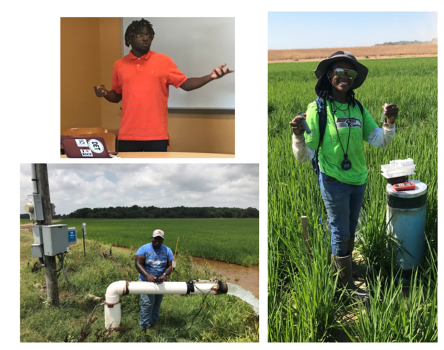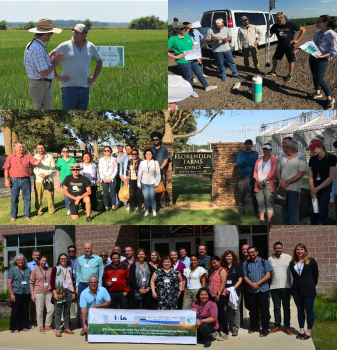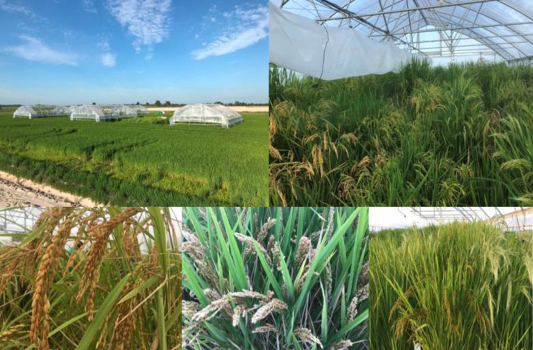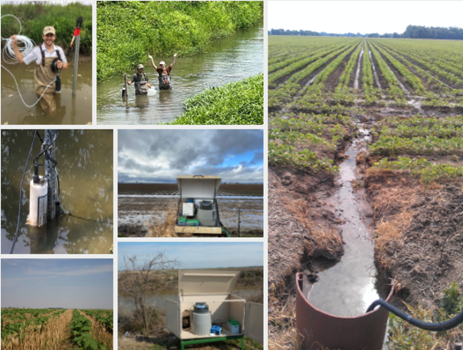In collaboration with University of Arkansas at Pine Bluff and Arkansas State University, DWMRU hosts college interns to help equip them with skills necessary to address 21st century agricultural issues.
The DWMRU works with international scientists as part of the Global Research Alliance Paddy Rice Research Group that leads efforts to study greenhouse gas emissions in rice agroecosystems around the world.
DWMRU has facilities to measure 11 water quality parameters, along with soil nitrogen, phosphorus, iron, hyperspectral C analysis of biomass materials and the trace gases N2O, CH4, and CO2.
As part of a public-private collaboration, DWMRU co-investigated measure the responses of over 300 rice varieties to high night air temperature using greenhouses that were heated nightly during rice bloom.
Water samplers located at the edge-of-fields and at stream edges are used to collect water samples that are then used to determine how different conservation practices influence water quality throughout the year.
DWMRU collaborates with producers, universities, and public and private entities to study how emissions of methane, nitrous oxide, and carbon dioxide from irrigated rice and cotton can be reduced while maintaining crop yields.
Eddy covariance techniques are used to make field-scale measurements of nitrous oxide, methane, carbon dioxide and water (evapotranspiration) that are helpful in optimizing water and fertilizer management.
DWMRU and collaborators are developing the DASIG Model for the calculation and modeling of greenhouse gas (GHG) emissions from agricultural crops. It provides a well-defined workflow that automates and simplifies the calculation of GHG fluxes from air samples collected in the field, allowing non-experts to produce high quality emissions data.
DWMRU and collaborators are developing the DASIG Model for the calculation and modeling of greenhouse gas (GHG) emissions from agricultural crops. It provides a well-defined workflow that automates and simplifies the calculation of GHG fluxes from air samples collected in the field, allowing non-experts to produce high quality emissions data.
AFFILIATED RESEARCH ORGANIZATIONS
Phone: 662-232-2908
Arkansas State University, 504 University Loop E
Jonesboro, AR 72401








